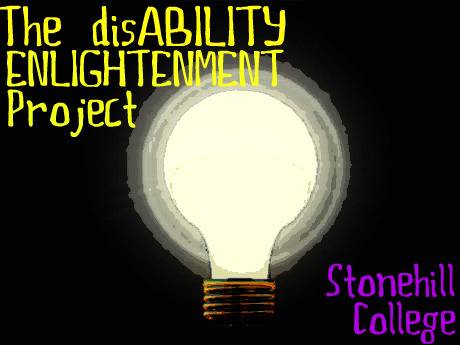The main issue that the attendants at Our Day were focused on was to fight against the proposed budget cuts to the Massachusetts Commission for the Deaf and Hard of Hearing. Advocates for the Deaf, Hard of Hearing, and Deaf-Blind understand that the state has a large deficit, and are therefore they not asking for increases in the budget allotted to the state offices that assist them, but they would just rather that cuts not be made to these offices that are already very poorly funded. The budget for the Massachusetts Commission for the Deaf and Hard of Hearing provides for very important services guaranteed under the First Amendment and the Americans with Disabilities Act—the right of the Deaf community to have American Sign Language interpreters. The ASL certification, referral, and training programs provided by the Massachusetts Commission for the Deaf and Hard of Hearing are vital for Deaf people to participate in the work place and society. By cutting services to the Deaf community, but not other groups of people, the government is saying that the needs of these citizens are secondary and unimportant.
The attendants of "Our Day" wanted to make sure that the needs of the Deaf community were not invisible or pushed to the wayside. The morning part of the program was dedicated to people speaking about issues like the budget cuts. Speakers included Heidi Reed—Commissioner for the Massachusetts Commission for the Deaf and Hard of Hearing, Senator Patricia Jehlen, Representative Barbra L’Italien, and Robyn Powell—Assistant Director for the Disability Policy Consortium of Massachusetts. They all reiterated the importance of speaking to your legislators, because just by showing up in their offices, a person really has the ability to make an impact.
After the morning speakers, Brian and I had the opportunity to link up with a large group of other Deaf advocates from the southeastern area of Massachusetts. We went on to visit with Representative F. Jay Barrows who represents Foxborough, Mansfield and Norton, and then with the legislative aids of Senator Mark Montigny (New Bedford, Acushnet, Dartmouth, Fairhaven, and Mattapoisett), Senator Michael Morrissey (Quincy, Braintree, Holbrook, Abington, Rockland), and Representative Antonio Cabral (New Bedford). Members of the Southeast group told the legislators and their aids personal stories. One young man explained how he was in the hospital for an invasive procedure and could not obtain an ASL interpreter for days to explain that he was in horrible pain.
These stories and the sheer number of people that showed up to participate in Our Day seemed to really have an impact in the legislative offices. They were really receptive to what we were saying. Brian told me how he was happy that the legislators and their aids cared about our concerns and were really approachable.
The majority of the attendees of the day long program knew or at least had some understanding of ASL. It was interesting for me because I don't know ASL at all, but attending Our Day made me really want to learn. There were a total of eight designated interpreters at the event and a number of other volunteers, so I was able to communicate with others even though I didn't know ASL. Also, the interpreters were extremely helpful when the regional groups met with the offices of their senators and representatives. But still, I would have really liked to speak with people directly without the use of a translator, so hopefully I will be able to take an ASL class someday. I also think that it is important for people to understand that ASL is not just a form of English- but a totally different language in itself. One of the people in my group did a great job at explaining this because he said if you do the literal translation of "My mother passed away" to ASL, the person receiving the message would think the person said "My mother just walked by." I have talked to a lot of students at Stonehill that think that ASL should be offered more often, and it should count towards the one year language requirement that we must take. Right now I think the ASL class just counts towards a health care major, but from my understanding it is a REALLY popular class. Also you know that it is a popular class because an 8am class usually does not have people fighting to get in!

Overall "Our Day" was a successful event, and Richard Grant, Dean of Academic Achievement and Chairman of the Stonehill Disability Services Committee explains that it is important for students to go visit with their legislators, "to see how government works, and potentially have an impact on the passage of a law and recognize that if students do go, it has a tremendous impact."
If anyone reading this is interested in attending another event like this, sign up for free to become a member of the Disability Policy Consortium of Massachusetts at www.dpcma.org.

Hello Ally! This is Karen Keefe of MassRelay. We met at the "Our Day" at the State House last month. Please email me at karen.keefe@hamiltonrelay.com as I lost your email address and would love to follow up with a chat on a possible MassRelay presentation to your support group and staff of Stonehill College. I hope all is well with you. Regards, Karen
ReplyDelete